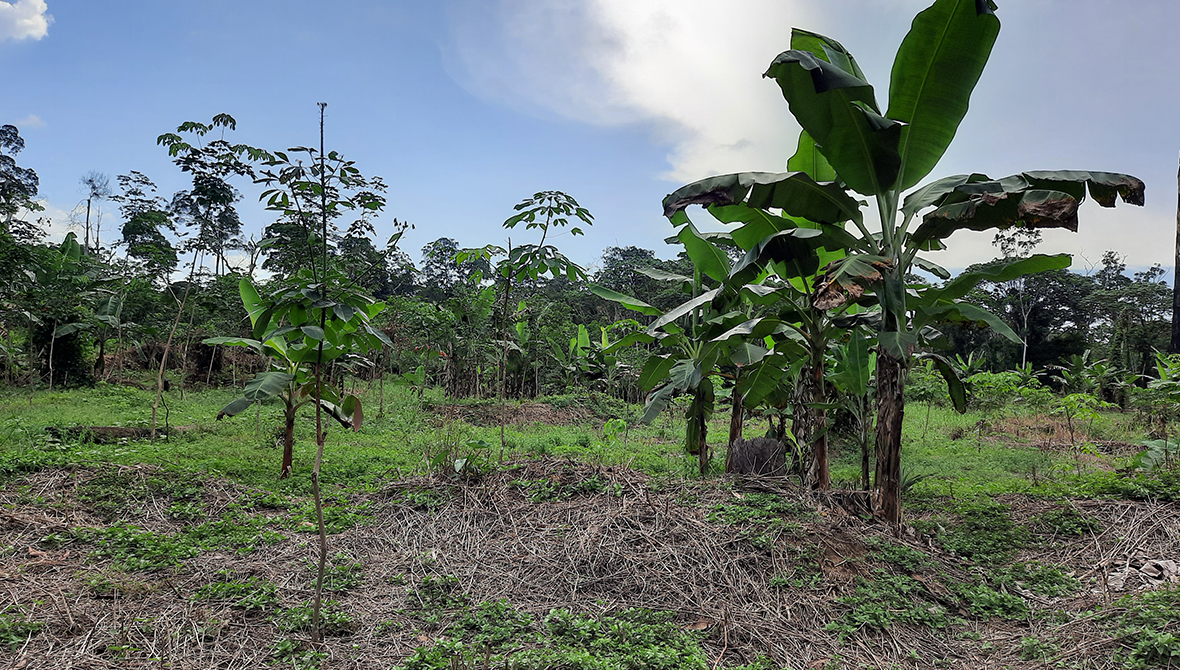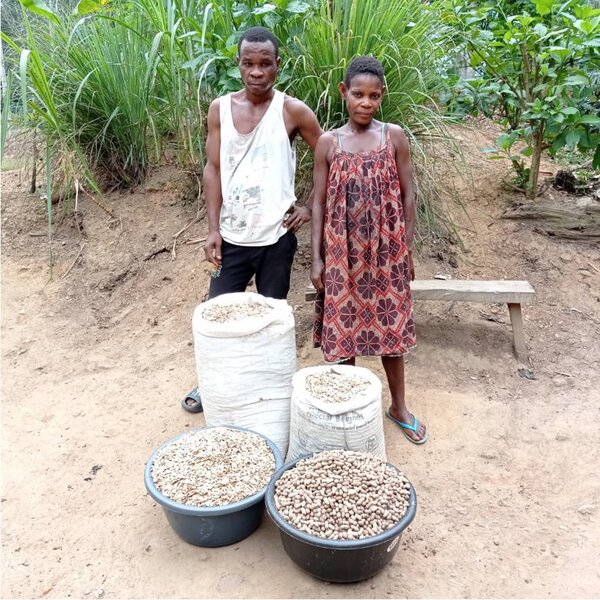Sustainable Agriculture Practices Key to Indigenous Community Success

AWF supported three Bagyeli communities in establishing 7.5 hectares of community rubber plantation mixed with banana plantain.

APPLYING SUSTAINABLE AGRICULTURAL PRACTICES HAS ALLOWED THE JEAN MBENGA FAMILY TO INCREASE THEIR ANNUAL INCOME FROM US$250 TO US$850 FROM THE SALE OF EGUSI AND PEANUTS, DECREASING THEIR DEPENDENCY ON FOREST PRODUCTS AND POACHING.
Campo Ma’an National Park (CMNP) lies 75 kilometers from Kribi, an up-and-coming industrial center and home to the Kribi Deepwater Port, the principal seaport for the region. Recent developments in the last 20 years also include the Chad-Cameroon Petroleum Pipeline, which exports up to 225,000 barrels daily, and the nearby Memve’ele hydroelectric dam, which provides 20% of Cameroon’s electricity. Adjacent to the seaport, a 15,000-hectare (a bit smaller than Washington, DC) industrial park and a modern city designed to house up to 300,000 people are in the works. Rapidly expanding development is taking a toll on natural resources. Both wildlife and humans feel the squeeze, particularly traditional communities living around the park, which are often left out of development opportunities.
AWF is leading a sustainable community farming initiative near the park, taking a rights-based approach to foster better relations between community members and park authorities. We are implementing community-led projects such as cooperative nurseries, seed distribution to farmers, and training in sustainable practices to boost crop yields and reduce wildlife damage. In 2023, 120 households from five Indigenous Bagyeli communities in the northern sector adjacent to the park participated in the program. They cultivated 92 hectares of corn, groundnuts, egusi (pistachio), cassava, and yams, leading to a 50% increase in the overall harvest for the community. This initiative has significantly reduced food insecurity and empowered families to meet their basic material needs and invest in their children’s education, marking a positive change in these communities.